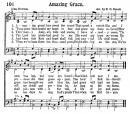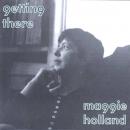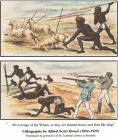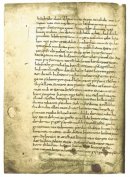Peace is the chief of all the worldes wealth,
And to the heaven it leadeth eke the way;
Peace is of man's soul and life the health,
And doth with pestilence and war away.
My liege lord, take heed of what I say,
If war may be left off, take peace on hand,
Which may not be unless God doth it send.
With peace may every creature dwell at rest;
Without peace there may be no glad;
Above all other good peace is the best;
Peace hath himself when war is all bestead;
Peace is secure, war is adread;
Peace is of all charity the key,
That hath the life and soule for to weigh.
For honour vain, or for the worldes good,
They that aforetimes the strong battles made,
Where be they now? - bethink well in thy mood!
The day is gone, the night is dark and fade,
Their cruelty which then did make them glad,
They sorrow now, and yet have nought the more;
The blood is shed, which man may no more restore.
War is the mother of the wronges all;
It slayeth the priest in holy church at mass,
Forliths the maid, and doth her flower to fall;
The war maketh the great city less,
And doth the law its rules to overpass,
There is no thing whereof mischief may grow,
Which is not caused by the war, I trow.
And to the heaven it leadeth eke the way;
Peace is of man's soul and life the health,
And doth with pestilence and war away.
My liege lord, take heed of what I say,
If war may be left off, take peace on hand,
Which may not be unless God doth it send.
With peace may every creature dwell at rest;
Without peace there may be no glad;
Above all other good peace is the best;
Peace hath himself when war is all bestead;
Peace is secure, war is adread;
Peace is of all charity the key,
That hath the life and soule for to weigh.
For honour vain, or for the worldes good,
They that aforetimes the strong battles made,
Where be they now? - bethink well in thy mood!
The day is gone, the night is dark and fade,
Their cruelty which then did make them glad,
They sorrow now, and yet have nought the more;
The blood is shed, which man may no more restore.
War is the mother of the wronges all;
It slayeth the priest in holy church at mass,
Forliths the maid, and doth her flower to fall;
The war maketh the great city less,
And doth the law its rules to overpass,
There is no thing whereof mischief may grow,
Which is not caused by the war, I trow.
envoyé par Riccardo Venturi - 7/8/2005 - 16:32
×
![]()







From his Play "Henry IV"
Dal dramma "Enrico IV"
Music: Traditional / Musica: Tradizionale
Un'antichissima testimonianza contro la guerra e per la pace di un poeta che fu amico di Geoffrey Chaucer, che Maggie Holland ha adattato ad una melodia tradizionale.
Gower's first work was Mirour de l'Omme (i.e. Mirror of Man) (wr. 1376-79), an allegorical poem in French meditating on the fall of man and the effect of sin on the world. Gower later latinized the title to Speculum Hominis, and later changed it to Speculum Meditantis to fit with the titles of his later works. Around 1377, Gower began work on Vox Clamantis (i.e. The Voice of One Crying), an essay in Latin elegiac verse. Like the Speculum Meditantis, it too treats of sinfulness, and criticizes the corruption of the society. It also provides a contemporary view of the Peasants' Revolt of 1381. Gower's moral and philosophical writings were highly praised by his peers. In 1385, Gower's good friend, Geoffrey Chaucer, dedicated the Troilus and Criseyde to him, giving him the epithet "moral Gower."
In 1386, Gower began work on his most acclaimed work, Confessio Amantis (i.e. Lover's Confession). Unlike his previous works, Gower wrote the Confessio in English at the request of Richard II who was concerned that so little was being written in English. It is a collection of tales and exempla treating of courtly love. The framework is that of a lover complaining first to Venus, and later in the work, confessing to her priest, Genius. The Confessio, completed around 1390, is an important contribution to courtly love literature in English. Some of the stories have their counterparts in Chaucer's Canterbury Tales, and one of the stories later served as the source for Shakespeare's Pericles, in which Shakespeare had Gower appear in the Chorus. Gower revised Confessio Amantis in 1393, replacing the praise of King Richard II with a dedication to Henry of Lancaster. In return, Henry presented Gower with an ornamented collar.
Next, Gower composed a series of Latin poems, as well as Traitié, a sequence of French ballads in rhyme royal. In 1397, Gower married Agnes Groundolf, probably his second wife. By this time Gower was nearly blind, so the marriage may have been one of convenience. King Richard II was finally deposed by parliament in 1399, replaced by Henry Lancaster as King Henry IV. Soon afterwards, Gower composed a sequel to Vox Clamantis, the Cronica tripertita (i.e. Tripartite Chronicle), in which he condemned the vices of King Richard II and his court. At this time, Gower also wrote Latin verses in praise of the new King, as well as his last English work, "To King Henry, in Praise of Peace". In 1400, Gower dedicated and presented his French work Cinkante Balades (Fifty Ballads), which some attribute to his younger days, to King Henry. Old and blind, John Gower died in 1408, leaving a considerable estate. He was buried in St. Mary Overies, now the cathedral of St. Saviour's, in Southwark, where his tomb can still be seen today.
http://www.luminarium.org/medlit/gower...